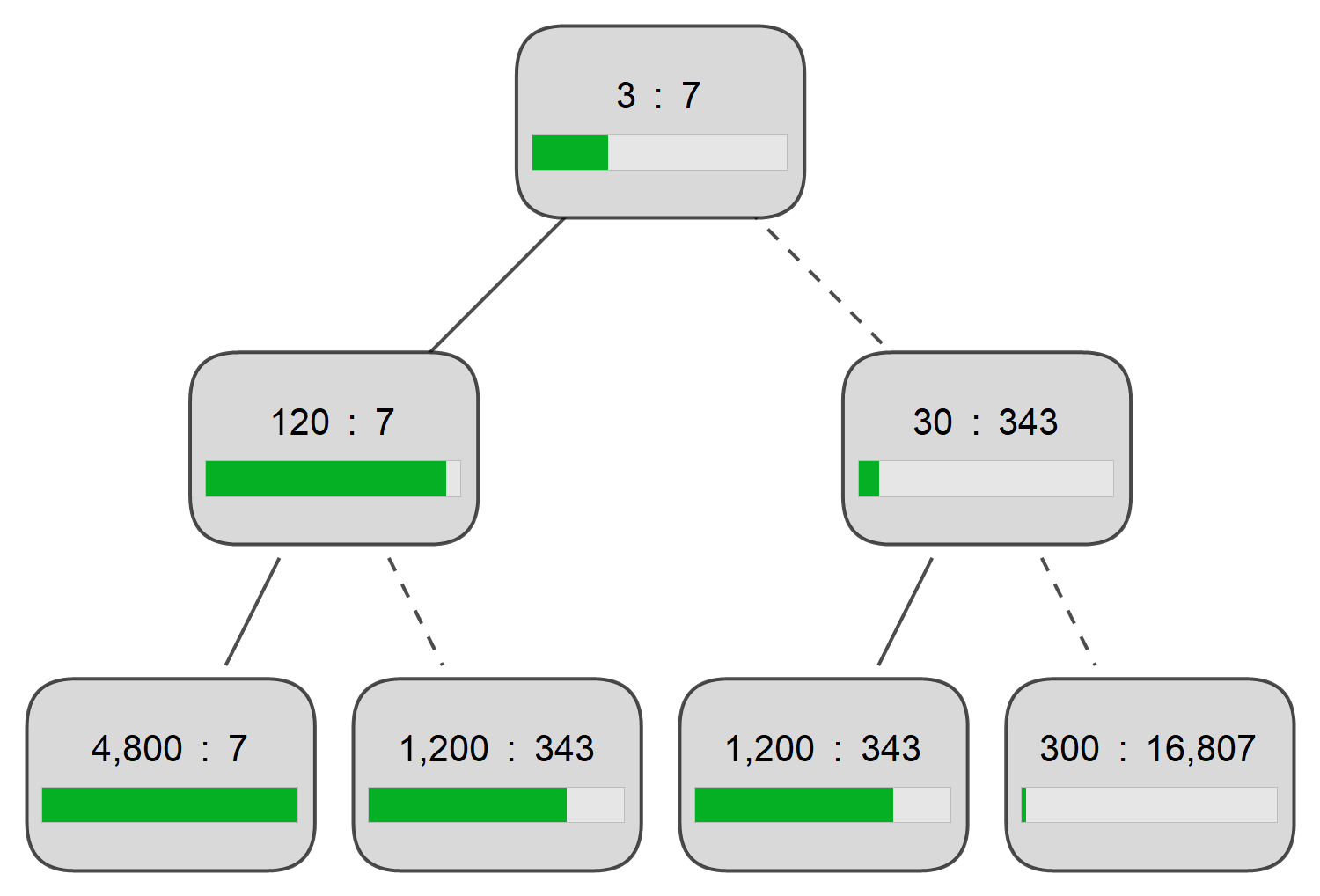Corona Tests and the Bayes Factor
A medical test does not give you the probability that you have a certain disease (such as COVID-19). Instead, it is evidence, which moves the odds of you having the disease up or down.
For example, when you know that in your city 3,000 people are infected and 7,000 people are not infected, then you may estimate your prior odds as 3 : 7. If you take a Corona test, and it comes out positive, then your odds change by a certain factor, known as the Bayes factor. For a test with sensitivity of 80% and specificity of 98% (this is the information you typically find on the web or on the test package), the Bayes factor of a positive test result is 40, so your odds would change from 3 : 7 to 120 : 7.
I created this little web app that lets you easily compute how your odds change:
Remember that your prior odds are higher if you had recently been exposed to an infected person, or if you show symptoms. Also, remember that the test’s Bayes factor does not take into account that you (or your doctor) might make a mistake during the test procedure.
